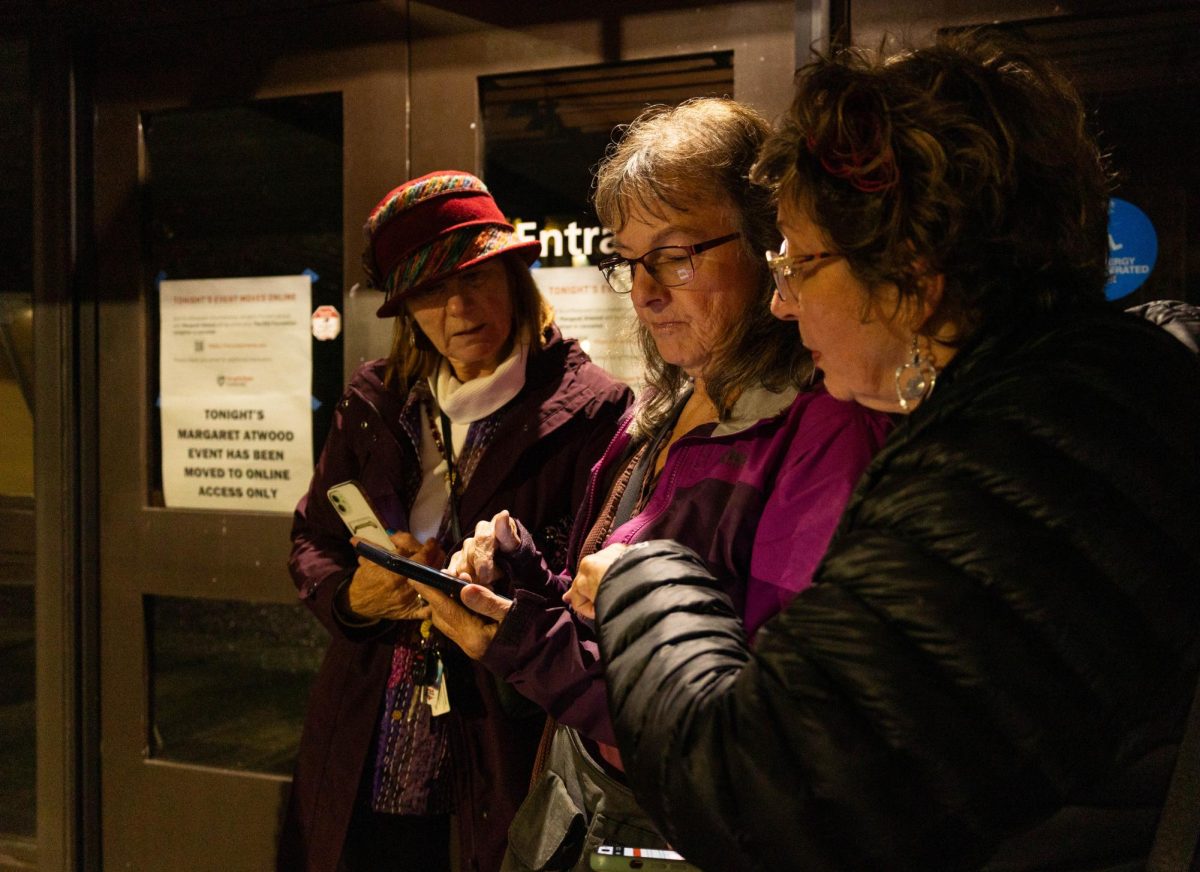SHS provides Medicaid-funded sexual health services
April 10, 2017
‘CCare’ program gives all students access to contraceptives
Fifty-three point two percent of college students reported using some form of contraception during sex within the last 30 days, according to the Spring 2016 National College Health Assessment from the American College Health Association.
At Oregon State University, Student Health Services offers many programs meant to increase the number of college students practicing safe sex. The leading program at SHS dedicated to providing OSU students with affordable contraceptives is Oregon Contraceptive Care, otherwise known as CCare.
“Students have a very busy life and CCare is a program that OSU students can access easily and quickly and provides all the currently available contraceptive options,” Susan Keister, a family nurse practitioner at SHS, said in an email.
According to Marian Landis, a CCare program specialist with SHS, CCare is a state-wide assistance program. CCare is funded by Medicaid, with the purpose of providing low-income individuals access to contraceptives.
“There are some qualifications that students have to meet in order to be eligible for the programs, since it is Medicaid based. You have to be a U.S. citizen or have eligible immigration status,” Landis said.
Individuals must also meet financial qualifications when seeking assistance through CCare, according to Landis. Patients cannot have health insurance through Medicaid and must qualify as a low-income individual making less than $2,475 per month for a household of one, Landis said.
“You also have to be a student here to be seen at this clinic (SHS),” Landis added.
Individuals using CCare are given access to contraceptives as well as services such as lab work, birth control, sexual health counseling, annual female exams and contraceptive insertion, according to Landis.
CCare is a confidential program that allows students to utilize their services discreetly.
“(We) offer confidentiality from using your parents’ insurance, which is a concern for a lot of students,” Landis said. “A lot of them don’t feel comfortable having any contraceptives or related labs or anything like that being billed to their parents’ insurance.”
According to the SHS website, CCare provides 11 contraceptive methods including birth control pills, male and female condoms, vaginal rings, hormonal patches, diaphragms, the implant, the shot, four kinds of intrauterine devices (IUDs), emergency contraception pills, natural family planning methods and vasectomy surgery for males over 21 years of age. These family planning methods are all completely covered financially by the CCare
program through Medicaid.
According to Kathryn Lederer, a nurse practitioner at SHS, CCare allows all students who choose to be sexually active to take responsibility for their
own sexual health.
“The most important role of affordable contraceptives is allowing students control over their bodies and being able to choose when to have a child,” Lederer said. “CCare allows access regardless of ability to pay, insurance status or confidentiality issues that come with being on parents’ insurance.”
The ability to choose when to have a child aids in students’ education and their paths toward success, according to Sarah Kailin, a family nurse
practitioner at SHS.
“To be able to plan when to be pregnant allows women to pursue their education and life goals, without the potential crisis of an unplanned pregnancy, or having their plans and goals delayed or derailed by an unplanned pregnancy,” Kailin said.
Serena Russum is an OSU alumna and temp in both the finance and billing office and CCare office at SHS. when she was a student at OSU, CCare at SHS gave her convenient access to her birth control without having to pay a copay. The accessibility also relieved stress in regards to her personal contraception in general.
“I think contraceptive care in general is on students’ minds a lot,” Russum said. “When you are in control of your contraceptives, it means you are in control of your body and you are in control of your life.”
The majority of students that enroll in CCare at SHS are females, according to Stacy Holder, a CCare program specialist with SHS.
“Since I’ve been in this position for a year and two months, I have probably signed up two or three (males) and thousands of females,” Holder said. “We’re here and available (for males) just like we are for women.”
CCare offers contraceptives and services for all students at OSU that meet enrollment qualifications, according to Holder.
“Males can get sexually transmitted disease testing for gonorrhea and chlamydia, just like women can, which is very important to know,” said Holder.
According to Dakota Cloud, an OSU student working at SHS and a CCare user, men may be less likely to enroll in and use CCare because they are unaware it is accessible and beneficial for them.
“I think guys don’t normally sign up for CCare because there’s that misconception that it is for women because it helps cover things like IUDs, birth control tablets and plan B. So guys are like, ‘Oh that’s not for me, it’s for ladies,’ which isn’t true,” Cloud said.
According to Holder and Landis, they are constantly working along with the marketers at SHS toward the goal of increasing the number of students enrolled in CCare, especially males.
“With the providers here, you have the confidence that you can talk to them about any sexual problems that might arise and feel safe and know that it will all be covered,” Cloud said.
Students can enroll in CCare at SHS by filling out and turning in an Oregon Contraceptive Care Enrollment Form to the CCare Program Specialists, according to Landis. Students who wish to utilize CCare’s services can then make a consult appointment to discuss insertion, removal, risks and efficacy of various birth control methods, and express any questions or concerns to a nurse practitioner.
“Once you are enrolled, we can actually give CCare patients 99 condoms per day, if that’s something that they want,” Landis said. “So come see us.”
For more information, students can visit SHS in the Plageman Building from 9 a.m. to 6 p.m. Monday through Friday, and 10 a.m. to 3 p.m. on Saturdays. CCare Program Specialists are located in Plageman room 117 and are available to see students 9 a.m. to 5 p.m., Monday through Friday.













































































































